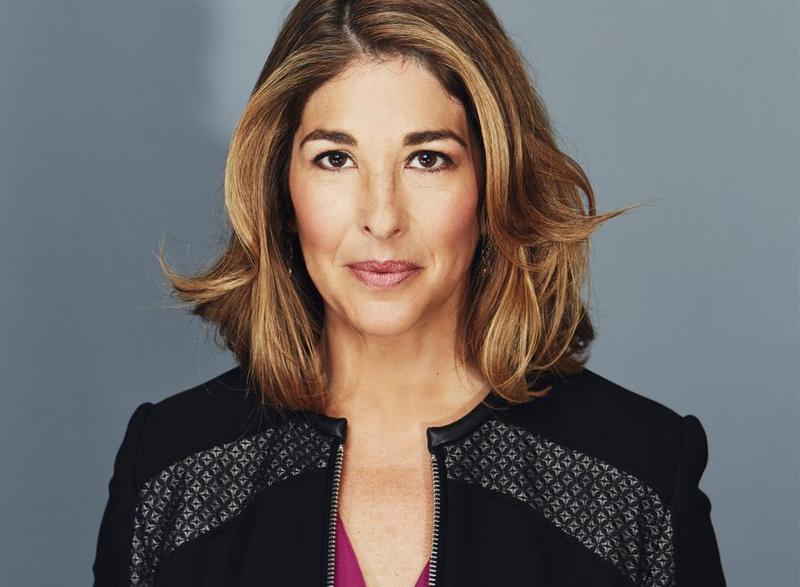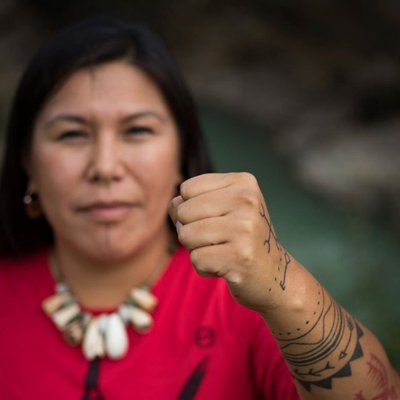
Naomi Klein wrapped up the final leg of her book tour on October 26 Chan Centre
Naomi Klein wrapped up the final leg of her book tour on October 26, presenting at UBC’s Chan Centre for a sold out venue as part of the Vancouver Writers Festival.
Klein opened the event with a discussion on her new book and was joined by Kanahus Manuel, an Indigenous land defender from the Secwepemc territories as well as event moderator, UBC School of Journalism Professor Kathryn Gretsinger.
Klein’s seventh book, On Fire: The (Burning) Case for a Green New Deal, focuses on the interconnectedness of what she refers to as simultaneous planetary and political “fires.” These fires are both literal in reference to rising temperatures and climate crisis, as well as in a metaphorical sense; With references to global political crises and the rise of fascism under figures like Trump, Bolsonaro in Brazil, Modi in India and Kashmir, and Duterte in the Philippines, to name a few she touched on.
In her opening address Klein emphasized themes from her book, particularly that climate destruction systematically intensifies pre-existing societal inequalities and vulnerabilities. She cited the historic 2017 wildfires in BC as an example, sharing that while smoke hung over the entire Lower Mainland for weeks on end, it was Indigenous communities whose wellbeing was disproportionately affected, along with undocumented migrant workers working in BC’s interior.
Klein brought hope to the on-stage conversation by addressing that while political and planetary fires are raging, metaphorical ‘personal’ fires are also on the rise, and continue to spark global social movements, from Haiti to Chile to Lebanon and beyond.
From racism to colonialism, imperialism, neoliberalism, extractivism, eco-fascism, climate destruction, poverty and despair, in Klein’s words, these struggles can be tackled all at the same time rather than as single-voter issues.
“The fight for Indigenous rights and title is absolutely inseparable from the fight for a habitable planet. They are one and the same,” Klein stated emphatically in the two hour event.
 Bearing a broken wrist and a defiantly raised fist, in a voice that was calm and contained, Manuel recounted a chilling incident of police violence from the week before.
Bearing a broken wrist and a defiantly raised fist, in a voice that was calm and contained, Manuel recounted a chilling incident of police violence from the week before.
“As I stand here today, I have this cast as proof of what Canada does to Indigenous people when they stand up for Indigenous land rights. There are mothers and children on the front lines.
“I don’t want anyone here to ever have to feel how this feels — for the RCMP to come and break your wrist at your home and take you away for three days without medical attention.”
Manuel was referring to her arrest the week before, when she and other Secwepemc land defenders had been resisting as federal pipeline developers encroached onto unceded Secwepemc territories.
“We expected them to deal with the matter in a diplomatic way; this is supposed to be a first world country,” said Manuel.

